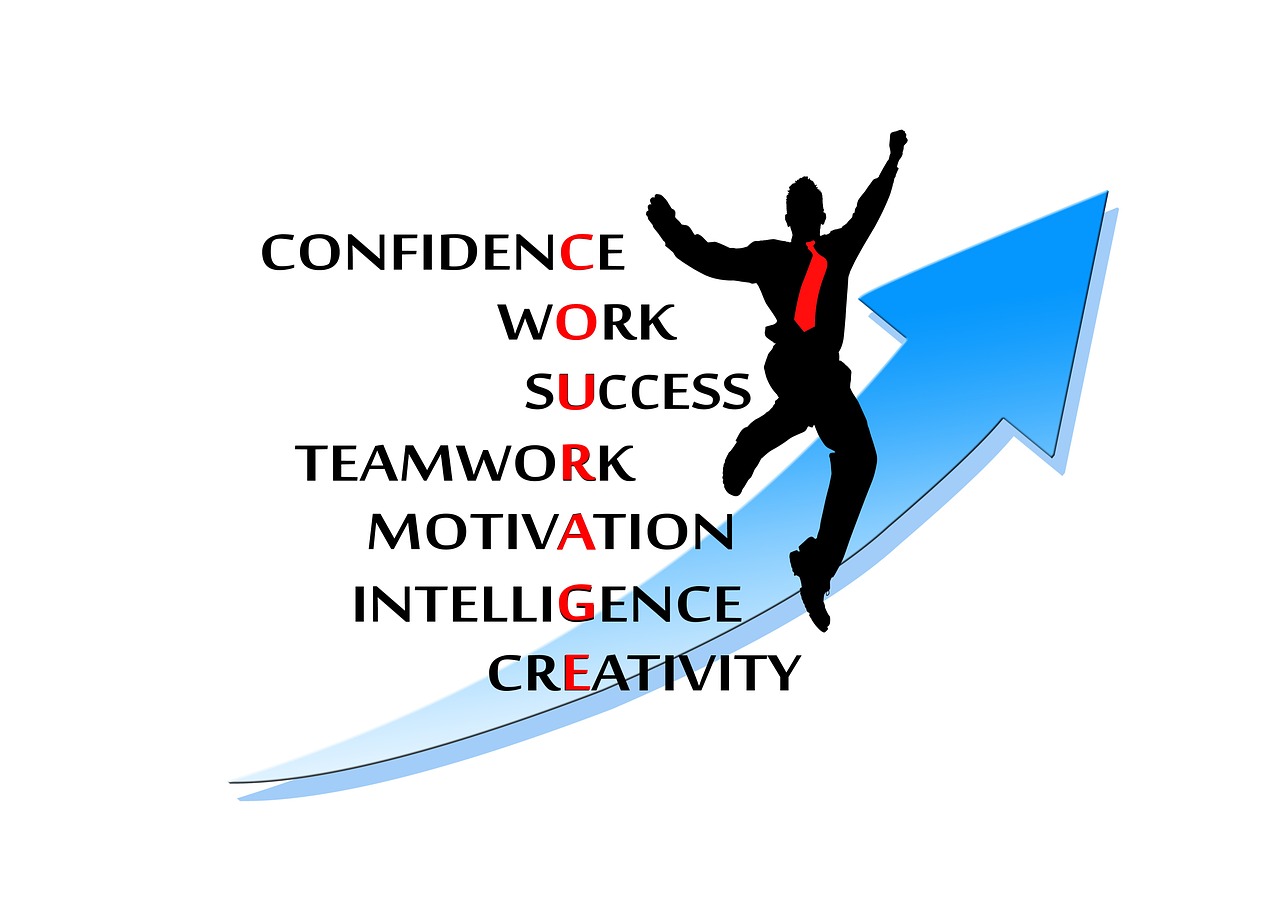Part One in our series on Coaching Leaders.
Confidence is foundational to leadership and influence when coaching leaders, but it is the one characteristic that is truly lacking in many emerging leaders. I see some leaders exhibit bravado and false self-confidence, but have a lack of true confidence when the tough decisions arise. Let’s turn to the topic of how we grow confidence in others. This is an important role of any coach, consultant, or leader.
Confidence is Key
This humorous story shows us why confidence is key to success.
There was a business executive who was deep in debt and could see no way out.
Creditors were closing in on him. Suppliers were demanding payment. He sat on a park bench, head in hands, wondering if anything could save his company from bankruptcy.
Suddenly an old man appeared before him. “I can see that something is troubling you,” he said.
After listening to the executive’s woes, the old man said, “I believe I can help you.”
He asked the man his name, wrote out a check, and pushed it into his hand saying, “Take this money. Meet me here exactly one year from today, and you can pay me back at that time.”
Then he turned and disappeared as quickly as he had come.
The business executive saw in his hand a check for $500,000 signed by John D. Rockefeller, then one of the richest men in the world!
“I can erase my money worries in an instant!” he realized. But instead, the executive decided to put the uncashed check in his safe. He thought just knowing it was there might give him the strength to work out a way to save his business.
With renewed optimism, he negotiated better deals and extended terms of payment. He closed several big sales. Within a few months, he was out of debt and making money once again.
Exactly one year later, he returned to the park with the uncashed check. At the agreed-upon time, the old man appeared. But just as the executive was about to hand back the check and share his success story, a nurse came running up and grabbed the old man.
“I’m so glad I caught him!” she cried. “I hope he hasn’t been bothering you. He’s always escaping from the rest home and telling people he’s John D. Rockefeller.”
And she led the old man away by the arm.
The astonished executive just stood there, stunned. All year long, he’d been wheeling and dealing, buying and selling, convinced he had half a million dollars behind him.
Suddenly, he realized that it wasn’t the money, real or imagined, that had turned his life around. It was his newfound self-confidence that gave him the power to achieve anything he went after.
(source: academictips.org)
We MUST help our clients, protégés, and apprentices develop confidence as we coach them. Why? Francisco Dao of Inc. states it well:
Self-confidence is the fundamental basis from which leadership grows. Trying to teach leadership without first building confidence is like building a house on a foundation of sand. It may have a nice coat of paint, but it is ultimately shaky at best. While the leadership community has focused on passion, communication, and empowerment, they've ignored this most basic element and, in the process, they have planted these other components of leadership in a bed of quicksand.
Leaders have to make decisions, yet fear paralyzes many. If someone is afraid to make and commit to decisions, all of the communication and empowerment in the world won't make a bit of difference.
How Do We Coach Others Toward Greater Confidence?
Grow Them in Their Understanding of the Confidence Equation
Confidence = Self-Belief x Evidence
A leader’s confidence is equal to his or her self-belief (“Who I Am”) multiplied times the evidence of past performance (“What I Have Done”).
The Who I Am/Self-Belief component is largely determined by age 9 or 10. Parents, teachers, and others are the primary shapers of our self-belief at an early age. When coaching leaders, some work can be done on self-belief, but it is a slow and arduous process to undo years of programming. Inspirational speeches will only carry your clients so far. As Mike Tyson once said, “Everyone has a plan until they get punched in the mouth.” When challenges come, there must be more than rah-rah cheers. A deep degree of confidence must be possessed.
The faster and more sustainable method to growing confidence is to build a leader’s self-awareness of the evidence that he/she can be successful. Two things come into play when building evidence.
1) Wins - Nothing inspires confidence and builds motivation like a win. Help your clients realize their past wins. Many people have a pessimistic outlook and tend to remember their failures and diminish their wins. Have your clients create a list of past wins. Talk with them about what went into the win.
2) Predictability - These past wins help your leadership coaching clients realize they have generated positive outcomes, which puts concrete evidence in the front of their mind that they can reasonably predict a win in a future outcome.
If you can help your client shape the preparation for an upcoming major decision, you have a powerful moment at hand. Just as a track or swimming coach would create workouts that reveal evidenced progress in a way that is similar to the race in which their athlete will compete, so we can work to practice success with our clients. If they need to persuade a team on a key decision, have them give their pitch to you, their executive coach. Polish it with them. Speak with them about how they came to the decision they will make, and tie it to how they made past successful decisions in method and manner.
Practical Ways to Grow the Evidence Base for Confidence
1. Create opportunities to learn by doing. Evidence is based on what the person completes – not the speech he/she hears, not what you say, not what he/she thinks – but what is actually accomplished.
2. Create situations for leaders to learn by problem solving and overcoming adversity. Experienced consultants and coaches utilize problem solving as a core activity. Presenting problems to solve and difficult situations to overcome can teach leaders enduring lessons while building a strong base of evidence to call upon when confidence is required.
3. Set high preparation standards. Once you have clearly helped your client define what a win looks like, help design the preparation environment which will provide the evidence your clients need to create strong, robust self-confidence, and then hold them accountable. I have a friend who does ultra-endurance events, which are extremely long runs and cycling rides of 12-24+ hours. In a recent conversation, my friend revealed he makes his training conditions worse and more difficult than the race environment in order to approach the race with as much confidence as possible. What is he doing? Building an evidence base that he can draw upon during the race when things get tough.
4. Celebrate wins, even small ones. In your work with your clients, celebrate every win, even if it is just the completion of a small assignment or project. This helps your client create a “win milestone” in their mind.
Help them Play Out Worse Case Scenarios
Fear occurs and hammers away at confidence when the mind partially plays out bad “what-ifs.” I include partially with much intention. Partial play out can tend to improperly frame the “what-if,” and it tends to be unrealistic. I recently spoke with an emerging leader who couldn’t pull the trigger on a decision because he feared its end result might leave him living homeless under a bridge. Part of coaching emerging leaders towards greater confidence is to help them fully play out the worst scenario that might occur should a certain decision be made. Often, when the full bad scenario is realistically visualized, it isn’t nearly as bad a risk or situation as the partially played out scenario. With this clearly in view, it is much easier to make a decision. In the case of the emerging executive, it was soon clear that he wasn’t going to be homeless regardless of which way he decided on the issue at hand.
You Can Make an Impact
As a leadership coach, life coach, or consultant, you CAN help your clients build confidence and see increased influence and successful results. Consider using the Keller Influence Indicator® as a benchmark to track the progress of your clients. Seeing their confidence score objectively increase builds greater confidence. We also offer a unique certification program for coaches and consultants.





